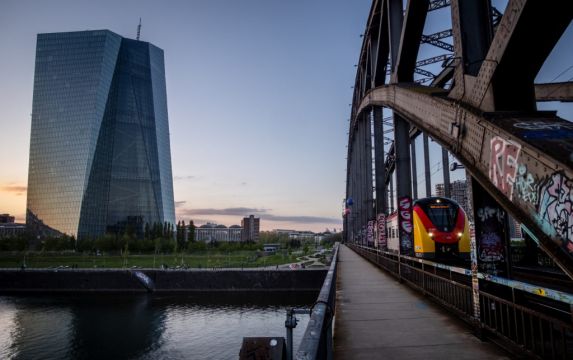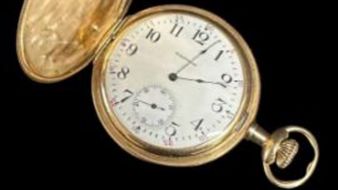Inflation plaguing Europe increased to 2.9% in December, after seven straight monthly declines, figures show.
The rise in price levels cast doubt on predictions for swift interest rate cuts from the European Central Bank (ECB).
The figure released on Friday was up from the 2.4% annual inflation recorded in November – but well down from the peak of 10.6% in October 2022.
ECB president Christine Lagarde warned that inflation could tick up in coming months, taking a detour from its recent downward path.
How did euro area bank interest rates evolve in November? How do they compare with October’s figures? Find out more in the press release https://t.co/UYdM22p3Uv pic.twitter.com/n2hdLdNMZa
Advertisement— European Central Bank (@ecb) January 5, 2024
The central bank for the 20 European Union countries that use the euro currency has raised its benchmark interest rate to a record-high 4% and says it will keep it there as long as necessary to push inflation down to its goal of 2%, considered best for the economy.
The faster-than-expected fall in inflation over the last months of 2023 had led some analysts to predict the central bank would start cutting interest rates as early as March.
The December rebound in inflation supported analysts who are predicting that rates would not start to come down until June.
Carsten Brzeski, chief eurozone economist at ING bank, said a jump in inflation to 3.8% from 2.3% in Germany, Europe’s largest economy, “strengthens the stance of keeping a very steady hand and not rushing into any rate cut decisions”.
Officials at the US Federal Reserve also stressed the importance of keep rates high until inflation is “clearly moving down”, according to minutes of their December 12-13 meeting released on Wednesday. The Fed has signalled three rate cuts this year.
A new year has begun – full of new challenges and opportunities. This year, the euro celebrates its 25th birthday. Now there’s a reason to celebrate! So, with that, I wish you and your loved ones a happy new year, and a successful 2024. pic.twitter.com/ifM4WcIPrd
— Christine Lagarde (@Lagarde) January 1, 2024
US consumer prices were up 3.1% in November from a year earlier.
Higher interest rates are the typical central bank tool against inflation. They raise the cost of borrowing for consumer purchases, particularly of houses and flats, and for business investment in new offices and factories.
That lowers demand for goods and relieves pressure on prices — but it also can limit growth at a time when it is in short supply in Europe. The economy shrank 0.1% in the July-to-September quarter.
Inflation itself, however, has been a key challenge to economic growth because it robs consumers of purchasing power. The ECB – like other central banks around the world – said raising rates quickly was the best way to get it under control and avoid even more drastic measures later.
The December inflation figure was boosted by the end of energy subsidies in Germany and France that had lowered prices a year ago.
Core inflation, which excludes volatile fuel and food prices, eased to 3.4% from 3.6% in November, according to European Union statistics agency Eurostat. This figure is closely watched by the ECB.
Inflation spiked in Europe as the rebound from the Covid-19 pandemic strained supplies of parts and raw materials, then as Russia invaded Ukraine in February 2022, raising costs for food and energy.
Europe has since found other supplies of natural gas outside Russia to generate electricity, power factories and heat homes, meaning energy prices have eased.
Europe – and the rest of the world – is facing a possibility of new delays and higher prices for consumer products as attacks by Yemen’s Houthi rebels have scared away the world’s largest container shipping companies and energy giant BP from sailing through the Red Sea and Suez Canal.







